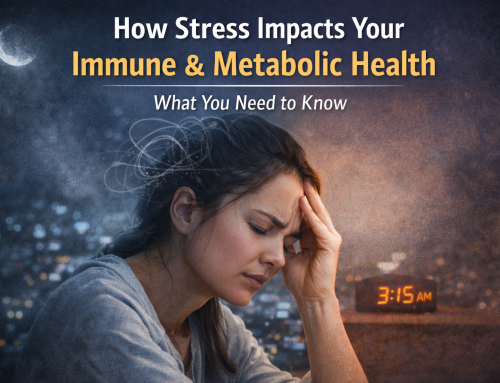Your healthy diet plan is unique to you. While there is solid scientific support for certain overarching nutrition concepts, there is also a lot we don’t know. That’s why you see statements like: Eggs are good for you. Eggs are bad for you. Avoid red meat. Enjoy red meat in moderation. Butter is out. Butter is back.
If your head is spinning, you’re not alone. According to a recent International Food Information Council Foundation survey, 80 percent of people feel confused about nutrition.
Concepts Supported by Solid Nutrition Research
Yet despite the seemingly always changing nutrition landscape and turnabouts in opinion there’s actually a lot of agreement in the nutrition world. Here’s a look at where there is consensus, along with a look at some areas where even the scientists are still a bit unclear.
Emphasize Plant Foods
Research consistently shows that when you eat mostly plant foods, markers of health improve. Benefits include lower blood pressure, triglyceride levels, glucose and waist circumference, which can translate to a lower risk of a number of different diseases, including heart disease and diabetes.
An interesting, recent study looked at different patterns of plant-based eating, from a strict vegan diet to a more flexible semi-vegetarian approach to a non-vegetarian diet, examining how each dietary pattern impacts different predictors of health. What was notable about this study is it investigated a spectrum of plant-based eating styles. It turns out, a strict vegan diet produced the highest levels of healthy biomarkers and the lowest levels of unhealthy markers. Vegetarians who include eggs, dairy and/or fish scored next best. The non-vegetarian group had the least favorable health markers in their blood, urine and tissue samples.
Plant-based eating isn’t a new concept. It’s been studied for decades and research repeatedly shows that a plant-focused plan can help offset a lot of the health challenges that develop over time. No matter what type of dietary pattern you follow, you should be eating mostly plant-based foots. That means 75 percent of your plate should include some mix of veggies, fruits, nuts, seeds, pulse and whole grains.
Reduce Red and Processed Meats
Though headlines this fall claimed otherwise, the majority of scientific evidence is on the side of limiting or avoiding these foods. In fact, the study from which these headlines arose was massively criticized and disputed. If you like red meat, but you also want to reduce your chances of dying prematurely from any number of causes, including heart disease and cancer, consider how you might cut back. Maybe that means eating a smaller portion of red meat on the occasions you’re enjoying it, or maybe it means having it a little less often. Also consider what else you’re eating alongside your steak dinner or at other eating occasions. A little red meat can be fine if your diet is rich in plant foods (see above).
The case against processed meat is a little more concerning. Earlier this year, Frank B. Hu, MD, Professor and Chair, Department of Nutrition, Harvard T.H. Chan School of Public Health, told me, “The current evidence suggests the higher intake of processed meat, the higher the risk of chronic diseases and mortality.” When pressed on what amount might be safe, he explained that we don’t have evidence to suggest a safe amount, but that eating a small amount of processed meat on occasion (which he defined as once or twice a month) is unlikely to have a considerable impact on your health. If you’re currently eating above this amount, it makes good health sense to cut back.
Focus on Healthy Fats and Carbs
In the fat vs. carbs war, healthy wins. In other words, you can eat a low-fat, high-carb diet healthfully just as you can eat a high-fat, low-carb diet healthfully. The main thing is choosing your fat or carb options wisely. We’re crystal clear on the fact that carbs from foods like veggies, starchy veggies (such as potatoes), fruits and pulses, all of which supply antioxidants, vitamins, minerals and fiber, are quite different from overly processed carbs, which supply few, if any, whole food nutrition.
There is also considerable agreement that fat is not the enemy and that fats from plant and fish sources provide anti-inflammatory health benefits. Inflammation within the body may not cause obvious symptoms, but when it persists, it’s thought to be involved in a number of disease processes, from mood disorders like depression, to heart disease, diabetes and Alzheimer’s disease. Though butter and other saturated fats may not be as unfavorable as we once thought, anti-inflammatory fats — when eaten along with other foods that lower the inflammatory process — may help you live and age more healthfully. In fact, even if you’re following a high-fat keto diet, health experts recommend focusing on these fats over others.
Eat Mostly Whole or Minimally Processed Foods
I struggle to think of any dietary advice that has more unanimous agreement than to reduce your intake of hyper-processed foods and to favor whole or minimally processed foods instead. We’ve discovered that heavily processed foods, which include processed meats, refined grains and many snacks and sweets, drive the inflammatory process that promotes disease, and diets high in heavily processed foods are associated with higher body weights and poorer health.
For the most part, choose whole or minimally processed foods whenever you can. That means looking at ingredient lists and trying to make healthier swaps for foods that are high in sodium, sugar, artificial sweeteners, colors and preservatives, which often signal that a product is heavily processed. This doesn’t mean giving up convenience, though. There’s a wide range of minimally processed foods that make meal prep saner and get the green light from nutritionists.
Your Healthy Diet Plan
Any one person can benefit from any number of eating patterns if focused on the above factors. Eating is a highly personal experience and it involves more than just fueling your body or sitting down to nutrients on a plate. Food can be nostalgic, part of social and religious events, and it can elicit an emotional response, providing a sense of comfort, stress reduction or joy.
A meal is hardly ever just one thing and understanding all of the things it is to you, along with your personal non-negotiables (what you won’t give up), can help guide you toward a dietary approach that you can live with.
Your neighbor might be successful on a keto plan and your co-worker may love being a pescatarian, but if you’re a kosher vegetarian, these plans pose too many challenges. This may be an extreme example, but it’s meant to illustrate how important it is to understand your unique needs and then identify an eating pattern that suits you best. It’s now widely recognized that different eating patterns can be appropriate for different situations, but that’s only if you can stick with the advice.
There are people who thrive on an intermittent fasting protocol while others can’t put up with the hunger or limitations of restricting eating to certain time windows each day. Nourishing your body is a commitment so determine what type of eating pattern sounds most doable to you and then try to adhere to it in the healthiest way possible. That means something different to everyone, so just do you.
Click here to read entire article on your healthy diet plan.






